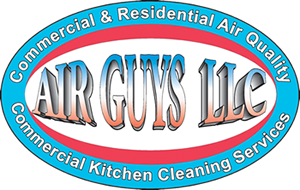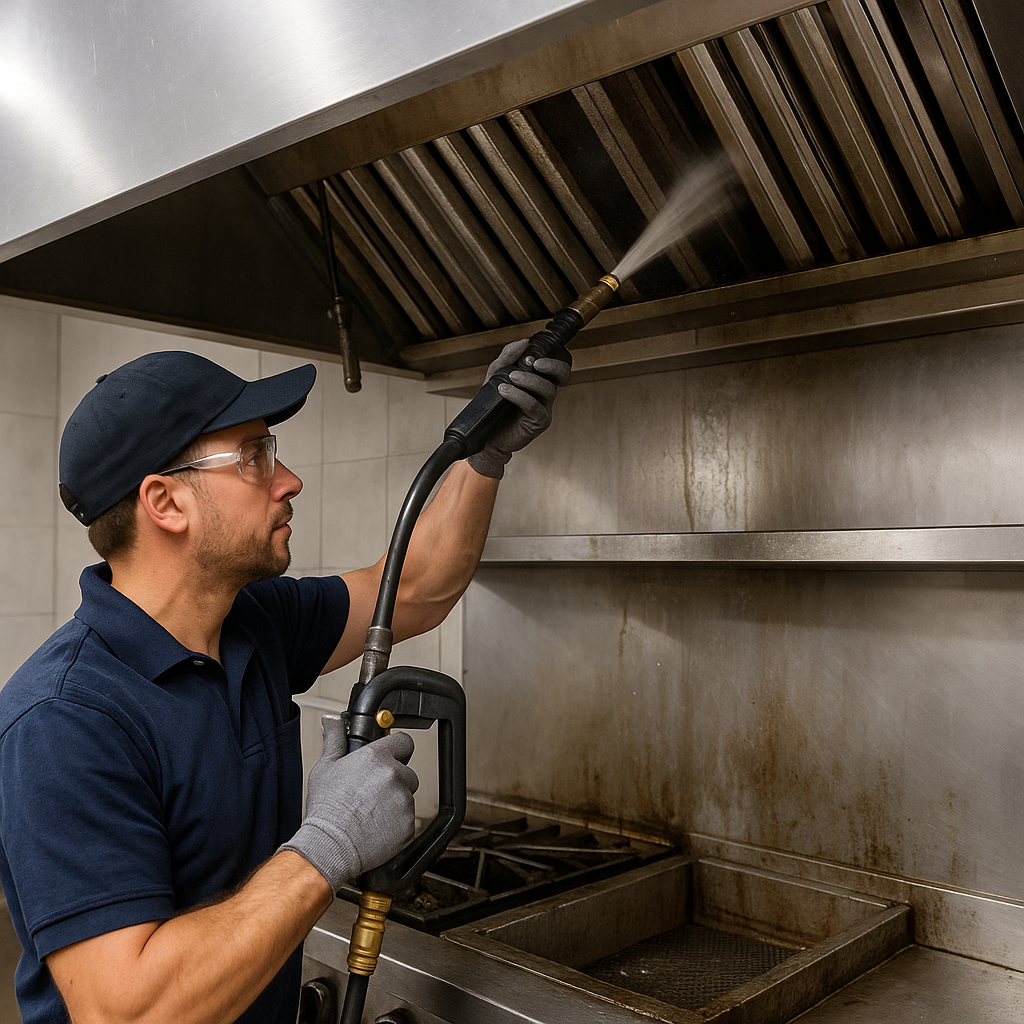Hood Cleaning
- Hood cleaning is essential for restaurants, hospitals, schools, nursing homes and other commercial kitchens to maintain facility health and ventilation system efficiency in any commercial kitchen.
- National Fire Protection Association (NFPA) sets standards for commercial cooking operations including hood cleaning and exhaust system maintenance. A professional cleaner from a reputable company will do the job to ensure thorough and compliant results.
- Regular hood cleaning ensures safety and fire protection standards, protects restaurants and commercial kitchens from hazards.
- Hood cleaning means maintaining kitchen exhaust and ventilation systems per NFPA and local AHJ standards and includes cleaning the whole system.
- Full cleaning covers all parts of the hood and exhaust system including the exhaust hood, access panels and grease traps.
A dirty hood can increase fire hazards, impede ventilation and poor indoor air quality, so regular cleaning is critical for safety and compliance.
Fire Safety
- Fire safety is key in commercial kitchens where grease buildup and heat can cause fires, including grease fire if not maintained properly.
- NFPA 96 standards govern ventilation control and fire protection in commercial kitchens including installation and maintenance of grease filters and hoods.
- Compliance to NFPA 96 is critical for fire safety and regulatory compliance and regular inspections can prevent costly fines and ensure compliance. Fire inspectors will do official checks to verify proper cleaning, grease removal and compliance to fire safety regulations.
- Fire extinguishers and proper cleaning of exhaust hoods are also important for fire prevention and safety.
- Full cleaning of the whole exhaust system including vents and grease traps can prevent grease fires and ensure fire safety.
Hood System Maintenance
- Hood system maintenance is critical for commercial kitchens including regular cleaning and inspection of the hood and exhaust system. Kitchen staff should not attempt to clean the hood system themselves as it’s complex and hazardous.
- Frequency of cleaning depends on the type of cooking operation, a professional service will clean the system thoroughly according to the specific needs of each restaurant.
- Moderate volume cooking operations may require less frequent cleaning but still need regular maintenance to prevent grease buildup.
- Low volume cooking operations like limited cooking or seasonal businesses may require less frequent cleaning but still need regular inspections to ensure safety.
- Regular maintenance can prevent costly repairs and ensure the life of expensive equipment, makes the job of maintaining the system easier for restaurant management.
Kitchen Hood and Fire Safety Regulations
Kitchen hood and fire safety regulations is the backbone of safe commercial cooking operations. National Fire Protection Association (NFPA) through NFPA 96 standard sets comprehensive guidelines for ventilation control and fire protection in commercial kitchens. These regulations requires regular inspections and professional cleaning of the whole exhaust system including access panels and grease traps to prevent grease buildup. Adhering to these standards not only protects the kitchen hood and exhaust system but also ensures the safety of employees and customers by minimizing the risk of fire. Local fire codes like city and state authorities work together with NFPA guidelines to provide an additional layer of fire safety. By following these regulations and
scheduling regular cleaning, restaurants and commercial kitchens can maintain compliance, protect their investment and create a safer environment for everyone in the facility.
Benefits of Professional Hood Cleaning Services
- Professional hood cleaning services can do a deep clean of the whole exhaust system including vents and grease traps.
- Professional cleaning can prevent grease fires and ensure fire safety and can also improve ventilation and reduce harmful fumes. Technicians will pay attention to detail during cleaning to ensure every component is thoroughly addressed.
- Regular cleaning can prevent costly fines and ensure compliance to local fire codes and NFPA 96 standards.
- Clients benefit from working with the same team for consistent service, expertise and trusted relationships.
- Many national chains and restaurants trust professional restaurant hood cleaning services to keep their restaurant hood safe, clean and in compliance with safety regulations.
Investing in professional cleaning can save money by preventing costly repairs and fire damage.
Exhaust Cleaning and Compliance
- Exhaust cleaning is critical for commercial kitchens and must be done in compliance with NFPA 96 standards and local fire codes. Professional kitchen hood cleaning is essential to meet these compliance requirements and ensure a safe environment.
- The whole exhaust system including vents and grease traps must be cleaned regularly to prevent grease buildup and ensure fire safety. Also, inspect and clean the roof area as grease can accumulate there and pose a big fire hazard.
- Regular inspections can identify areas that need more frequent cleaning such as wok cooking or high volume cooking operations.
- Compliance to NFPA 96 standards is critical for fire safety and regulatory compliance and regular cleaning can prevent costly fines.
- Exhaust cleaning is time consuming and requires special attention to detail, makes professional cleaning services a valuable investment.

